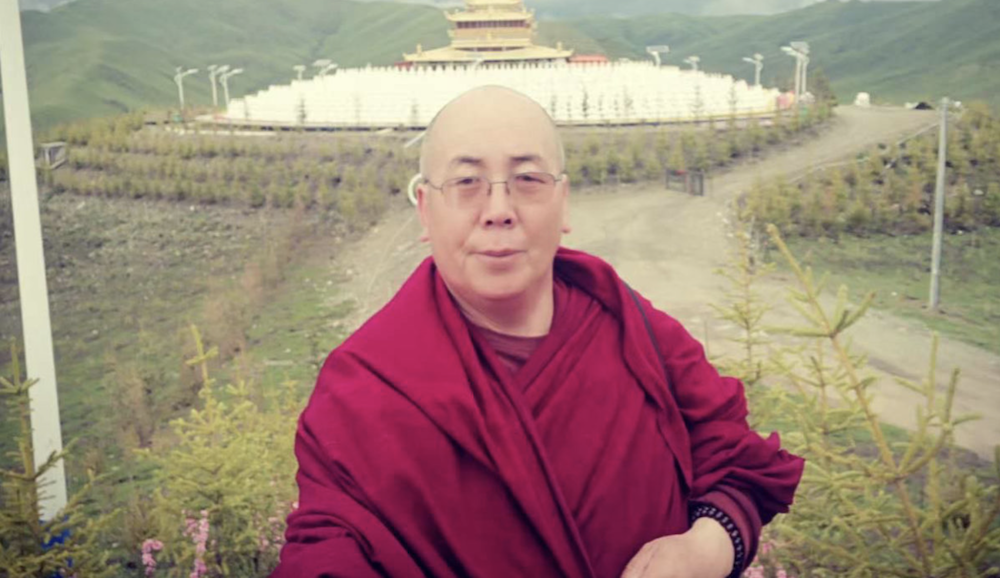By Tenzin Dorjee
It is late night, and eyelids grow heavier by the minute. But a small group of Tibetans and Supporters in New York are up and restless. They are preparing for battle. A small battle, but an important battle nevertheless. Chinese President Hu Jintao is coming to New York City! He’s got blood on his hands and fear in his heart – blood because he is guilty of running a totalitarian regime that oppresses millions of people in China, Tibet and East Turkistan; fear because he remembers his 2002 visit to New York when hordes of Tibetans and Supporters hounded him up and down Park Avenue and staged continuous protests outside Waldorf-Astoria, the hotel where he was staying (without sleeping a wink, we could tell).
Although small in size, the exile Tibetan community has always proved a formidable mob when it comes to tormenting Chinese leaders and making them pay abroad for their crimes in Tibet. This week, once again, when Hu Jintao goes places and meets people in New York, we are given the opportunity to shout our grievances right in his face so that there is no doubt whatsoever that he has heard our voice.
In an unfortunate but predictable turn of events, our Prime Minister Samdhong Rinpoche has requested Tibetans and Tibet Support Groups in the United States not to stage protests during Hu Jintao’s visit. Rinpoche intimates to a small Dharamsala crowd that the negotiation efforts on the issue of Tibet “has reached a make or break stage.” This is very strange. For within the same hour at the same venue, when Rinpoche was asked about an Indian newspaper that quoted him as saying that the next round of talks will focus on the “national defense and security of Tibetans,” he quickly corrected that he had been misunderstood. He added that the Tibetan government is still “very much in the process of creating conducive environment to realize the actual negotiation.” Now, how can a negotiation process reach a “make or break” stage when it hasn’t even started? But that is beside the point.
The point is that Hu Jintao – the head of the imperialist Chinese government, the man who ordered martial law in Tibet in 1989 to crack down on unarmed protestors, the dictator who runs a country that is illegally occupying Tibet and oppressing its people – will be in town, traveling in a bullet-proof limo and eating at five-star hotels. Shall we give him a free pass? Can we allow him to address the United Nations right under our nose and not raise a single fist in protest? Would silence on our part do justice to the protestors in Lhasa who were calling for an independent Tibet even as death and torture stared them in the face?
The point is that our trust building overtures to Beijing are answered with White Papers and an ever-hardening stance. While Rinpoche has a sweet tooth for happily moderate activities such as lobbying other governments, “disseminating information about Tibet, and writing to Chinese leaders,” etc, we have learned from experience that the one activity that truly and deeply troubles the Chinese is our loud but peaceful protest. No wonder the Chinese embassy in Washington, DC asks every Tibetan visa applicants, “Have you ever participated in protests against visiting Chinese leaders?” This shows how far the echoes of our slogans travel – all the way to Beijing and back. By urging us not to stage protests, Rinpoche is not only blocking the Tibetan people’s only avenue of resistance, but is also compromising the very negotiation process that he seeks to protect. Giving in to all of Beijing’s demands before we have even reached the negotiating table will ensure that we’ll never sit down at it.
One thing the Chinese government knows too well is that we would laugh our bellies sore if a request for “silence” came from Beijing. That is precisely why Beijing is using the Tibetan government as a leverage to tie our hands and gag our mouths. That Beijing would use such a circuitous route to muffle our voices makes it clear that our protests truly embarrass the Chinese leaders and affect the Chinese government, thus making them feel the need for a negotiation solution to the Tibet problem. The more we protest, the greater the need of the Chinese to talk to us; the more we protest, the more we create the “conducive environment” necessary for negotiations.
This is also an issue of democracy. His Holiness insisted in 1960, just one year after he had fled Tibet, that our government must become democratic. He envisioned, rather hoped, that the Tibetan people would become a democratic society, fully equipped to make our own decisions and shape our own future. After all, forty-five years is enough time for us to learn that democracy means participation and questioning, not silence and submission. So we question our Prime Minister, “Has silence ever saved a victimized people?” If we do not ask this question, if we do not weigh the futility of silence against the utility of protest, then we would be betraying our democratic duties. Even worse, we would be failing His Holiness; for it was to build a progressive and intelligent society that the young Dalai Lama gave his people the gift of democracy in the first place. Blindly accepting our Prime Minister’s request without questioning its viability is not an act of democracy; it’s not even an act of faith. It is a sign of laziness.
As it is, we have given enough. Compromise any further and we might as well have issued Mao an invitation letter to march his army across the Tibetan border. The Chinese government has bought our silence before by whispering promises in our ears. Let us not get fooled this time. Let us learn from the past to secure our future. For now, let us protest and make some noise.









